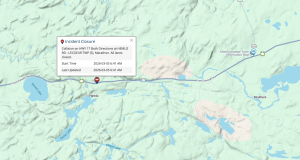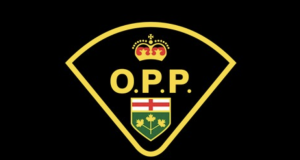June 21, 2021, is the national 25th anniversary of celebrating First Nations, Inuit, and Métis heritage, diverse cultures, and outstanding achievements. The Canadian Counselling and Psychotherapy Association (CCPA) is committed to ensuring equitable access to counselors and psychotherapists for Indigenous People as a step toward reconciliation. “Decolonization is possible when Indigenous Peoples and Communities are uplifted, invited to engage, when Indigenous voices are heard and valued, when protocols and ceremonies are respected, and only when non-Indigenous folks are willing to listen and lean into the discomfort of unlearning. The path is often unclear because this country and our institutions are built on colonial structures. Decolonization is a lifelong commitment and starts within each of us.” shares Dr. Melissa Jay, a Nehiyaw-Métis member of the Métis Nation of Alberta, and Indigenous Director of the Canadian Counselling & Psychotherapy Association.
CCPA’s Indigenous Director and Indigenous Circle Chapter (ICC) raise awareness and offer a network for Indigenous and non-Indigenous counsellors to work together on issues that impact Indigenous clients, families, and communities. In 2016, CCPA published an issue paper that examined the urgent need to increase and improve mental health services for Indigenous peoples in Canada. Additionally, in 2018, CCPA launched the Indigenous Continuing Education Credit program, and in 2020, CCPA’s updated Code of Ethics included a section on Indigenous Peoples, Communities and Contexts. These initiatives support building a solid foundation of safe, culturally responsive competencies for members who work with Indigenous communities.
“The last twelve months have given us many historical markers; some horrific, some mind boggling and many that have warmed our heart. For me, a pivotal event was my election as the Director at Large – Indigenous Representative of the Manitoba Chapter of the CCPA”, reflects Kym Edinborough-Capuska. “This role, in symphony with my existing position as President Elect of the Indigenous Circle Chapter, is a tangible indicator of the desire to foster change. Any opportunity to integrate Indigenous awareness, education and sensitivity into long-standing colonial structures gives me hope that we, as a nation, are gently forging a new and better path forward.”
Culturally safe approaches to mental health services for Indigenous Peoples must be based on an understanding of the social determinants of health unique to an Indigenous context, such as cultural identity, connection to the land, community connectedness, and the ongoing affects of historical trauma and racism. “Indigenous kin, let’s continue reclaiming our intuitive ways of being & knowing. Let’s walk in pairs because it’s safer and good relations lead to healing”, says Dr. Melissa Jay. “Non-Indigenous kin, learning the Truth is the key ingredient in the commitment of decolonizing places, spaces & hearts. If you have not sat with and read the Truth and Reconciliation reports and findings, please consider why that is. We call on you to learn the Truth and to challenge conditioned ways of thinking and being. For those collaborating with Indigenous folks, please ensure protocol is respected, that you are committed to nurturing ongoing relations, and consider compensating Indigenous folks well for their time and knowledge.”
A number of CCPA’s members work with First Nations, Inuit and Métis peoples in community settings and urban centres, providing culturally safe mental health support for Indigenous Peoples. Please visit the CCPA directory of Canadian Certified Counsellors across Canada at https://www.ccpa-accp.ca/.
- Ladies Curling Standings – March 3rd - March 5, 2026
- Men’s Curling Standings as of March 2nd - March 4, 2026
- Split the Pot Lottery “Marches Into Gold” - March 2, 2026
 Wawa-news.com Local and Regional News
Wawa-news.com Local and Regional News


